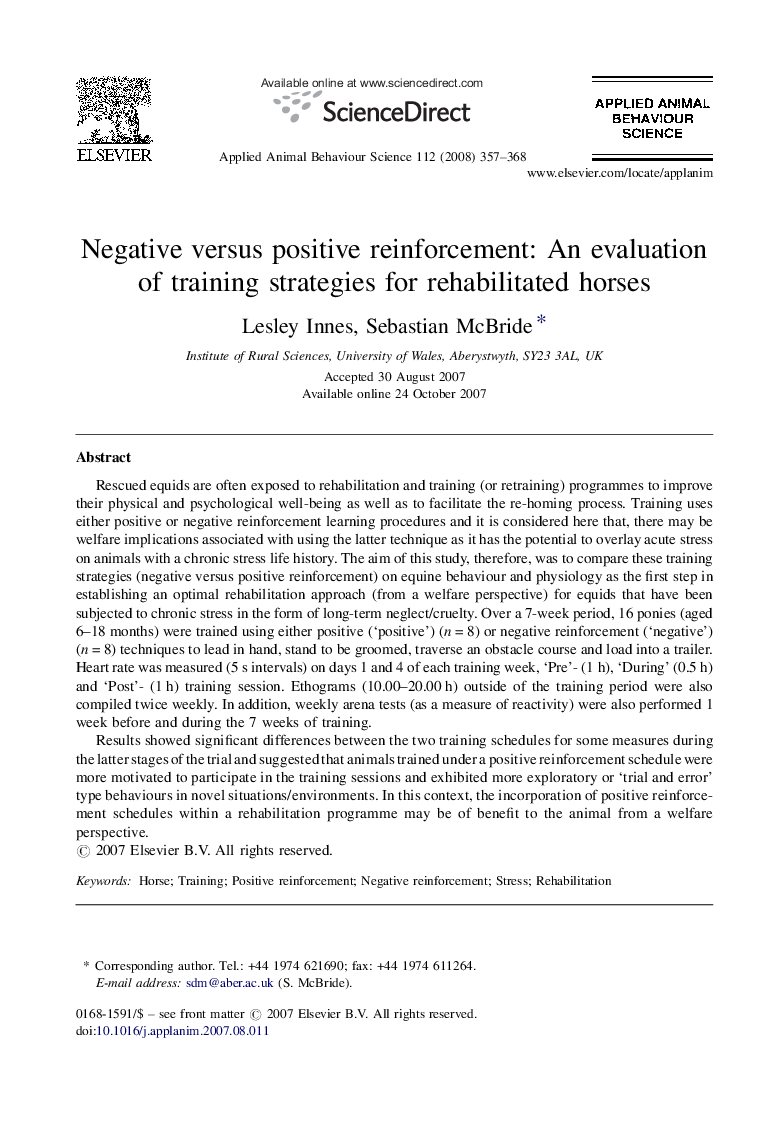| کد مقاله | کد نشریه | سال انتشار | مقاله انگلیسی | نسخه تمام متن |
|---|---|---|---|---|
| 4523978 | 1625420 | 2008 | 12 صفحه PDF | دانلود رایگان |

Rescued equids are often exposed to rehabilitation and training (or retraining) programmes to improve their physical and psychological well-being as well as to facilitate the re-homing process. Training uses either positive or negative reinforcement learning procedures and it is considered here that, there may be welfare implications associated with using the latter technique as it has the potential to overlay acute stress on animals with a chronic stress life history. The aim of this study, therefore, was to compare these training strategies (negative versus positive reinforcement) on equine behaviour and physiology as the first step in establishing an optimal rehabilitation approach (from a welfare perspective) for equids that have been subjected to chronic stress in the form of long-term neglect/cruelty. Over a 7-week period, 16 ponies (aged 6–18 months) were trained using either positive (‘positive’) (n = 8) or negative reinforcement (‘negative’) (n = 8) techniques to lead in hand, stand to be groomed, traverse an obstacle course and load into a trailer. Heart rate was measured (5 s intervals) on days 1 and 4 of each training week, ‘Pre’- (1 h), ‘During’ (0.5 h) and ‘Post’- (1 h) training session. Ethograms (10.00–20.00 h) outside of the training period were also compiled twice weekly. In addition, weekly arena tests (as a measure of reactivity) were also performed 1 week before and during the 7 weeks of training.Results showed significant differences between the two training schedules for some measures during the latter stages of the trial and suggested that animals trained under a positive reinforcement schedule were more motivated to participate in the training sessions and exhibited more exploratory or ‘trial and error’ type behaviours in novel situations/environments. In this context, the incorporation of positive reinforcement schedules within a rehabilitation programme may be of benefit to the animal from a welfare perspective.
Journal: Applied Animal Behaviour Science - Volume 112, Issues 3–4, August 2008, Pages 357–368